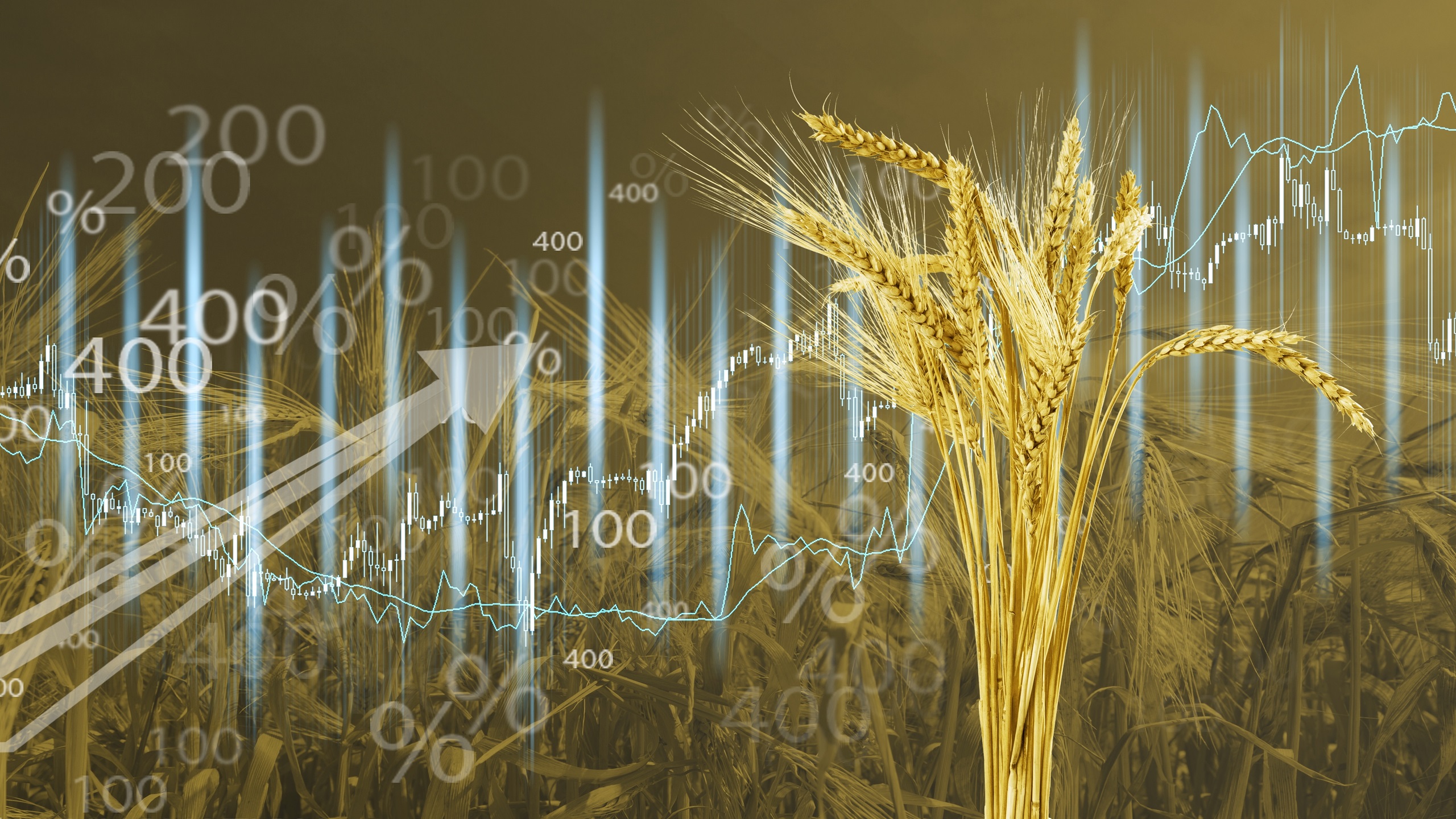Wheat Futures Prices Volatile, Countries Face Food Crises Following End of Black Sea Grain Deal
The lack of access to Ukrainian and Russian grains is “an unnecessary shock” to 345 million people around the world, and for many countries in the Middle East and North Africa it will be “catastrophic,” experts warn
Wheat futures prices have risen sharply and many countries, especially in the Middle East and North Africa, are facing a severe food crisis following the falling apart of the Black Sea grain initiative last week.
The suspension of the Black Sea initiative is an unnecessary shock for the 345 million acutely food-insecure people around the world
“Last Wednesday [July 19] saw the largest single-day increase in wheat prices since the start of the war in Ukraine,” Abeer Etefa, a senior spokeswoman and regional communications officer for Middle East and North Africa at the United Nations World Food Program in Cairo, told The Media Line.
“The WFP would welcome a resumption of negotiations between the parties,” she said. “The suspension of the Black Sea initiative is an unnecessary shock for the 345 million acutely food-insecure people around the world.”
The Black Sea grain initiative, signed in July 2022, has been one of the few diplomatic achievements reached since Russia’s invasion of Ukraine in February 2022. Mediated by the UN and Turkey, the deal saw Russia agreeing to allow Ukraine, one of the world’s main grain producers, to export wheat, corn, barley, and other agricultural products via its ports on the Black Sea through Turkey’s Bosporus out to the world. However, Russia pulled out of the deal last Monday, resulting in spiraling prices and several vulnerable countries being left without a grain supply.
Etefa said that over the past year, more than 32 million metric tons of grain and foodstuffs had been moved to 45 countries as part of the deal.
“This helped bring down global food prices, with the benefits felt all across the world, both in countries that directly received Ukrainian foodstuffs and those that benefited from lower food prices,” she said.
She said that 24 WFP-chartered vessels had sailed under the initiative while it was in force, carrying grains and foodstuffs to relieve hunger in some of the world’s hardest-hit areas, especially the Horn of Africa, Afghanistan, and Yemen.
The lack of Russian and Ukrainian grains has a catastrophic impact on the MENA region in terms of food security, food prices, and humanitarian needs, as well as on their economies
Give the gift of hope
We practice what we preach:
accurate, fearless journalism. But we can't do it alone.
- On the ground in Gaza, Syria, Israel, Egypt, Pakistan, and more
- Our program trained more than 100 journalists
- Calling out fake news and reporting real facts
- On the ground in Gaza, Syria, Israel, Egypt, Pakistan, and more
- Our program trained more than 100 journalists
- Calling out fake news and reporting real facts
DONATEJoin us.
Support The Media Line. Save democracy.
Elhadi Abdalla Mohamed, international coordinator for the Sudan Call humanitarian initiative, told The Media Line that the Middle East and North Africa region was one of the most heavily affected by the halting of the agreement.
He said that in 2021, before the Russian invasion, the MENA region imported over 36 million metric tons of grains mainly from Russia and Ukraine. He said the two countries together produced over 20% of the world’s grains, with their exports going mainly to the MENA countries.
“The lack of Russian and Ukrainian grains has a catastrophic impact on the MENA region in terms of food security, food prices, and humanitarian needs, as well as on their economies,” Mohamed said.
He said that 20 to 25% of the world’s most food-insecure populations are in MENA countries and that Egypt is the world’s largest grain importer, and therefore one of the hardest hit by the lack of Russian and Ukraine grains.
Mohamed said that other countries also expected to be badly affected are Yemen, Sudan, Libya, Syria, and Lebanon.
“This is due to their expanding humanitarian crisis and the increase in the number of affected populations in need of humanitarian assistance,” he said.
In Sudan, the UN estimates that 25 million people, more than half the country’s population, need assistance.
A spike in grain prices means a higher cost of food products for people who have been hit by shock after shock over the last few years: conflicts, climate extremes, the COVID pandemic, a global economic slowdown, and high rates of domestic food price inflation
“A spike in grain prices means a higher cost of food products for people who have been hit by shock after shock over the last few years: conflicts, climate extremes, the COVID pandemic, a global economic slowdown, and high rates of domestic food price inflation,” Etefa said.
“The WFP deeply regrets the decision by the Russian Federation to terminate its participation in the implementation of the Black Sea initiative.”
Mohamed said that one positive effect to emerge from the Russia-Ukraine war is that the issues of migration and alternative oil and gas markets have been placed in the spotlight.
He said that MENA countries with oil export potential, such as Libya, are likely to benefit from increasing interest in oil exploration and development investments.
In addition, with increasing numbers of Ukrainian refugees in European Union countries, “the EU will strive to reach some economic deals with the North African countries to curb the migration through the Mediterranean to the EU,” he said.
Still, that benefit is small compared to the vast humanitarian and economic crises that various MENA countries are experiencing.
“The reduction in international humanitarian aid, the general increase in the global market prices for grains, and the lack of access to grains from Russia and Ukraine, as well as the sharp decline in the food aid support from the WFP and INGOs, will increase the food security crisis and weaken the economies of these countries,” Mohamed said.



